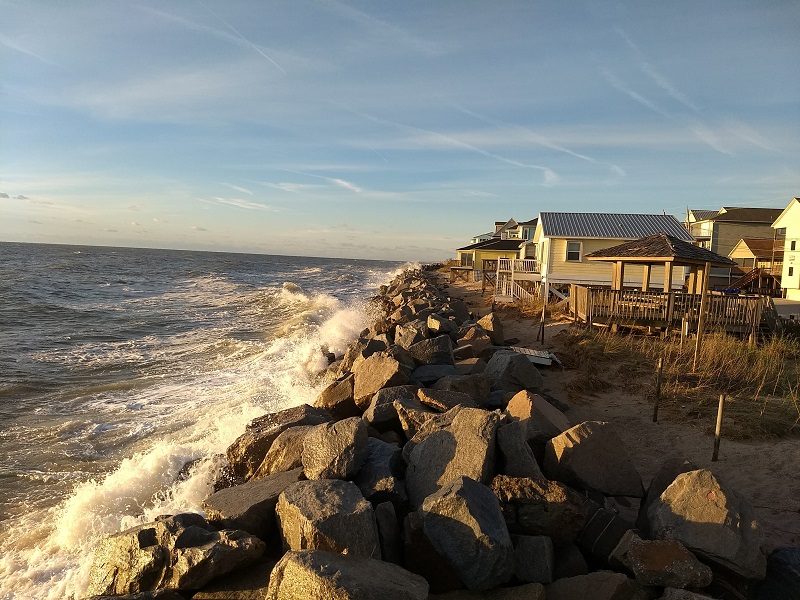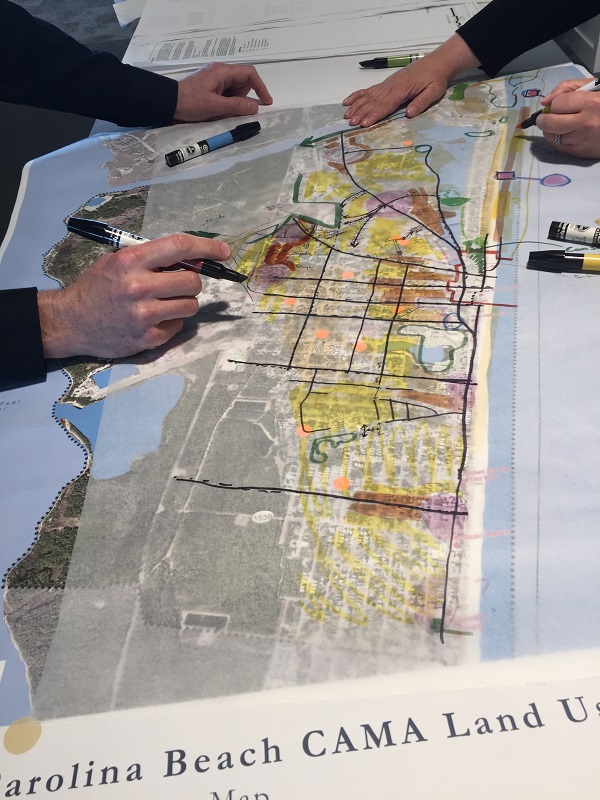
Stewart’s Data-Driven Designs Help Strengthen Resilience of Coastal Communities
As another hurricane season comes to a close, coastal communities are reflecting on storms that have impacted the state in recent years. A total of 21 storms affected North Carolina between 2008–2018 and last month not only marked the anniversary of Hurricane Florence, but Hurricane Dorian made landfall. Rising sea levels and a warming atmosphere that holds more water are triggering more intense storms, so coastal areas must be prepared.
North Carolina-based Stewart is strengthening the resiliency of a number of coastal communities, preparing for future vulnerabilities.
Stewart, an interdisciplinary design, engineering and planning firm, has partnered with coastal communities throughout North Carolina to develop and implement coastal resilience plans that uncover future vulnerabilities and direct strong community growth. The firm’s municipal planning and mobility practice is currently working with Carolina Beach, Swansboro and Duck, among other coastal locations, to prepare for potential hazards and build sustainable value in the community.
Coastal communities are required to comply with the Coastal Area Management Act (CAMA), and Stewart is delivering value with a unique data-driven approach to CAMA compliance as well as the diverse talents and backgrounds of the company’s employees. With these differentiators, Stewart implements coastal resilience plans that are tailored to each location’s needs, geographic makeup, current stage of planning and community interest, while addressing potential hazards such as hurricanes and the subsequent effects including flooding and infrastructure vulnerabilities.
Plans underway include:
Carolina Beach – Stewart is working with Carolina Beach on an update to its existing CAMA plan. The coastal town often faces stormwater and flooding concerns, which were exacerbated during Hurricane Florence in 2018. Through the CAMA plan, Stewart, in partnership with Carolina Beach, is enhancing the town’s resilience and minimizing risk while supporting the existing community.
Swansboro – Stewart partnered with the waterfront town to update its CAMA land use plan, which is currently being implemented. Following impacts from Hurricane Florence in 2018, Stewart included additional considerations in the plan to locate development away from environmentally sensitive areas.
Duck – Stewart is currently working with Duck on an update to its existing CAMA plan. The town is unique in that it is nearly 100% built out, bounded by water on both sides and is subject to sound-side flooding, creating a circumstance that requires precision and creativity to maintain a healthy balance of development and preservation.
“As coastal communities prepare for and face severe storms or other related hazards, it’s imperative that they have the right resilience plans in place,” said Cindy Szwarckop, associate vice president and municipal planning and mobility practice leader, Stewart. “We’re proud to partner with communities to address existing vulnerabilities and implement the plans that will prepare for future growth. We recently opened a Stewart office in Wilmington to better serve our coastal clients, and we look forward to continuing to build on this legacy as we work with communities to deliver sustainable value.”

Stewart showcased its innovative approach to coastal resilience planning and implementation at the 2019 North Carolina Planning Conference, hosted by the North Carolina chapter of the American Planning Association at the Wilmington Convention Center in October. During the conference, Jay McLeod, senior planner and project manager, moderated a panel session exploring real-world, proactive responses to resilience for coastal North Carolina communities, including Stewart’s current work with Carolina Beach and Swansboro.
McLeod brings a unique, scientific perspective to Stewart and its current projects, having received his master’s in urban ecology and biology. Coupled with Stewart’s focus on data-driven designs, the municipal planning and mobility group is well positioned to deliver the resilience plans that will prepare coastal communities for potential hazards and direct future growth.
To learn more about Stewart, please visit www.stewartinc.com.
About Stewart
Stewart is located throughout the Carolinas, with offices in Raleigh, Durham, Wilmington and Charlotte, North Carolina, and Columbia, South Carolina. With a unique interdisciplinary collaborative approach that results in stronger and more creative design solutions, Stewart serves domestic and international clientele, offering a full range of services to meet the needs of its clients, including:
Civil Engineering
Geomatics
Geotechnical & Construction Services
Landscape Architecture
Municipal Planning & Mobility
Sports & Events
Structural Engineering
Transportation Stewart is a certified Historically Underutilized Business (HUB) with the State of North Carolina. The company was recognized as a 2019 Best Places to Work by Triangle Business Journal and a 2018 Best Places to Work by Charlotte Business Journal. Stewart was also nationally ranked as a 2019 Top 500 Design Firm by Engineering News-Record. For more information, visit www.stewartinc.com or follow Stewart on LinkedIn, Twitter and Instagram.
Originally posted on Stewartinc.com






